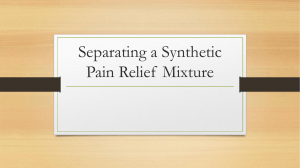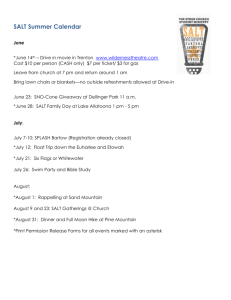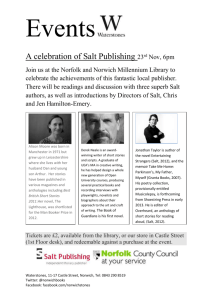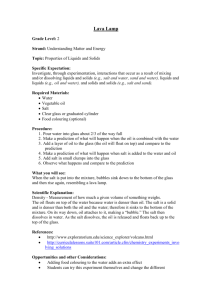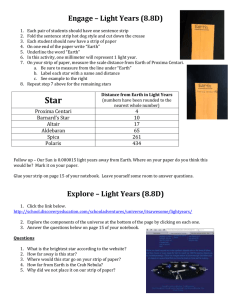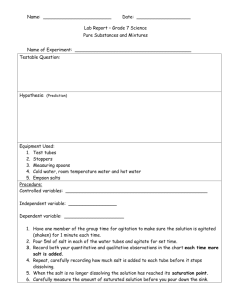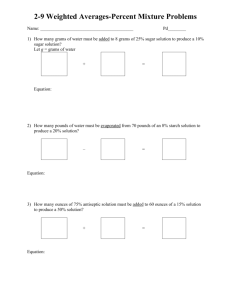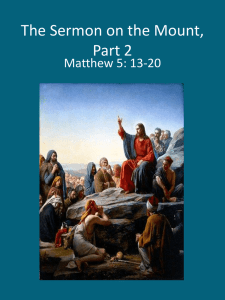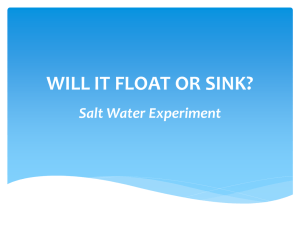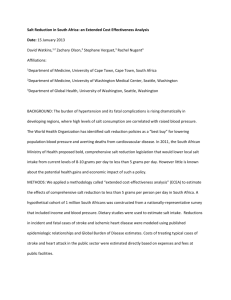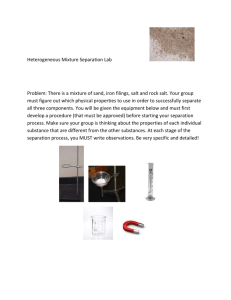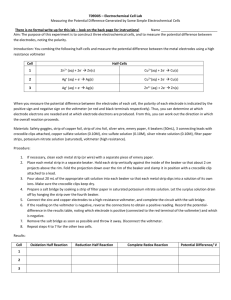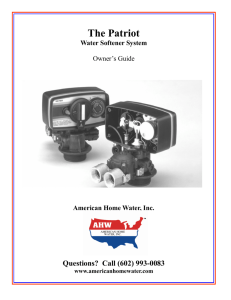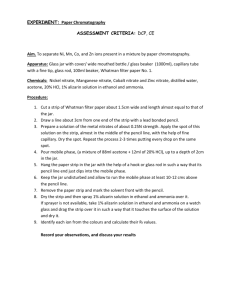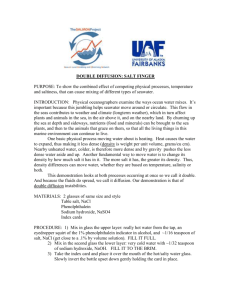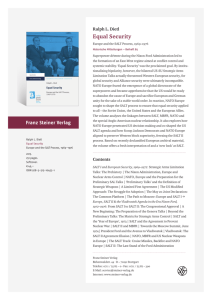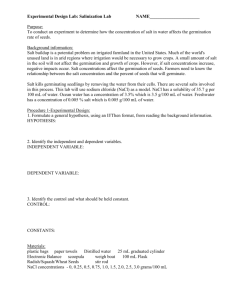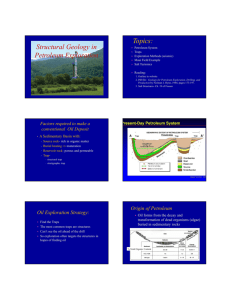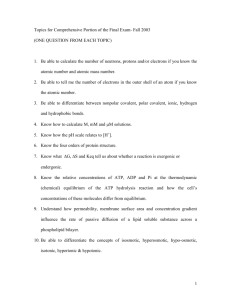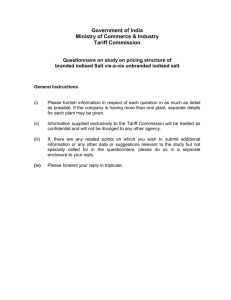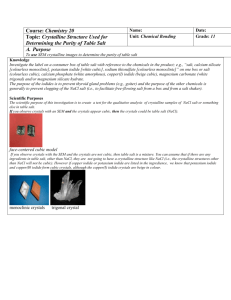Marine and Freshwater Biology
advertisement
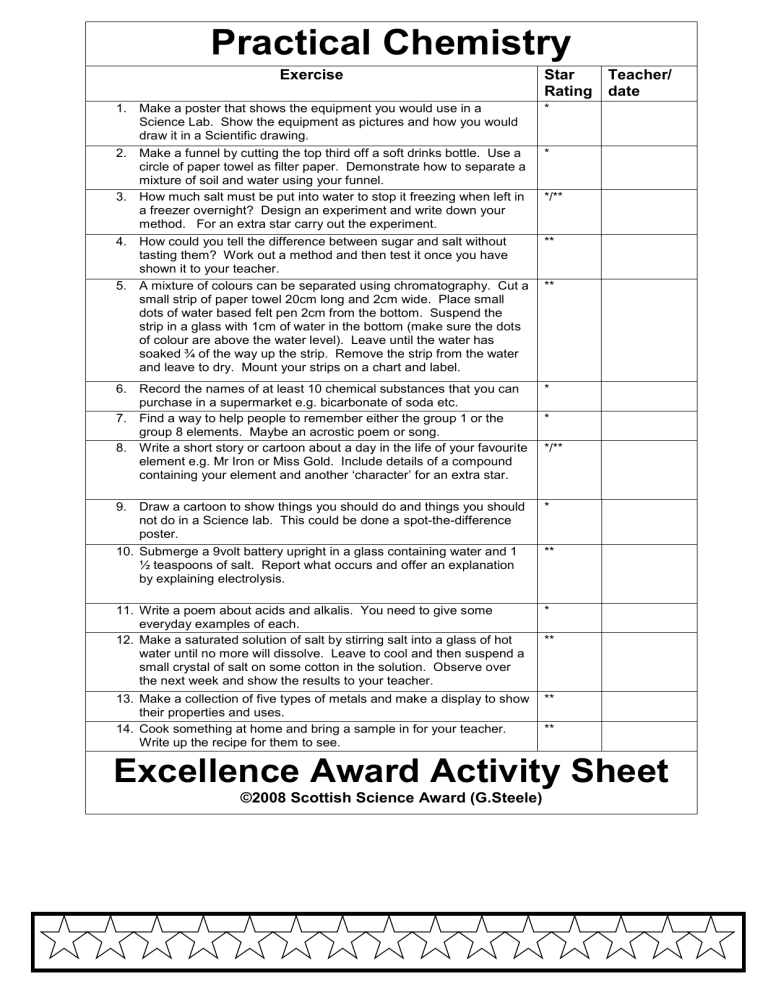
Practical Chemistry Exercise Star Rating 1. Make a poster that shows the equipment you would use in a Science Lab. Show the equipment as pictures and how you would draw it in a Scientific drawing. 2. Make a funnel by cutting the top third off a soft drinks bottle. Use a circle of paper towel as filter paper. Demonstrate how to separate a mixture of soil and water using your funnel. 3. How much salt must be put into water to stop it freezing when left in a freezer overnight? Design an experiment and write down your method. For an extra star carry out the experiment. 4. How could you tell the difference between sugar and salt without tasting them? Work out a method and then test it once you have shown it to your teacher. 5. A mixture of colours can be separated using chromatography. Cut a small strip of paper towel 20cm long and 2cm wide. Place small dots of water based felt pen 2cm from the bottom. Suspend the strip in a glass with 1cm of water in the bottom (make sure the dots of colour are above the water level). Leave until the water has soaked ¾ of the way up the strip. Remove the strip from the water and leave to dry. Mount your strips on a chart and label. * 6. Record the names of at least 10 chemical substances that you can purchase in a supermarket e.g. bicarbonate of soda etc. 7. Find a way to help people to remember either the group 1 or the group 8 elements. Maybe an acrostic poem or song. 8. Write a short story or cartoon about a day in the life of your favourite element e.g. Mr Iron or Miss Gold. Include details of a compound containing your element and another ‘character’ for an extra star. * 9. Draw a cartoon to show things you should do and things you should not do in a Science lab. This could be done a spot-the-difference poster. 10. Submerge a 9volt battery upright in a glass containing water and 1 ½ teaspoons of salt. Report what occurs and offer an explanation by explaining electrolysis. * 11. Write a poem about acids and alkalis. You need to give some everyday examples of each. 12. Make a saturated solution of salt by stirring salt into a glass of hot water until no more will dissolve. Leave to cool and then suspend a small crystal of salt on some cotton in the solution. Observe over the next week and show the results to your teacher. * 13. Make a collection of five types of metals and make a display to show their properties and uses. 14. Cook something at home and bring a sample in for your teacher. Write up the recipe for them to see. ** Teacher/ date * */** ** ** * */** ** ** ** Excellence Award Activity Sheet ©2008 Scottish Science Award (G.Steele)
